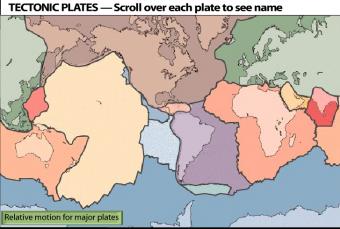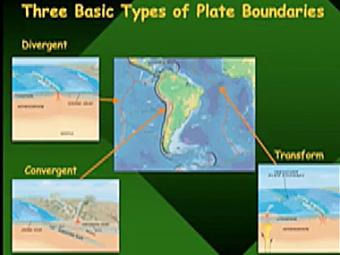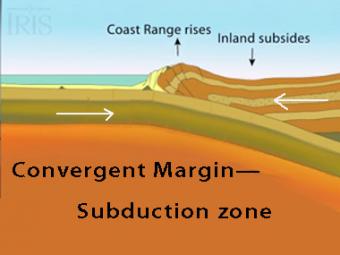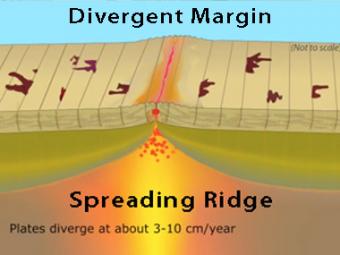
What are the major tectonic plates of the world?
Interactive map of tectonic plates from the US Geological Survey plate tectonic map reveals the plate names when you scroll over the plate. Scrolling over green button shows relative motions.
VIEW the interactive in a separate tab, by clicking on "Open Resource". (Note some browsers lack the plugins for rollovers.)
OR click Download All. AFTER downloading, you can Open either:

Video lecture covers three basic types of tectonic plate boundaries.

The subduction zone iswhere two tectonic (lithospheric) plates come together, one subducting (diving) beneath the other. The plates are locked together and periodically overcome the friction causing the leading edge of the overlying plate to surge back, lifting a wall of water producting a tsunami.

New oceanic crust is created at this boundary when basalt magma, formed in the mantle, rises into fractures in the crust and solidifies. Spreading ridges are high elevation because the young oceanic plate at the ridge crest is hot and less dense than the older, colder and more dense plate on the flanks of the ridge.
We encourage the reuse and dissemination of the material on this site as long as attribution is retained. To this end the material on this site, unless otherwise noted, is offered under Creative Commons Attribution (CC BY 4.0) license